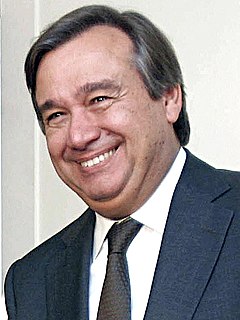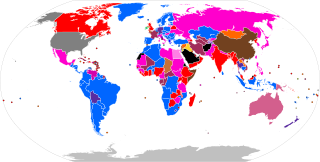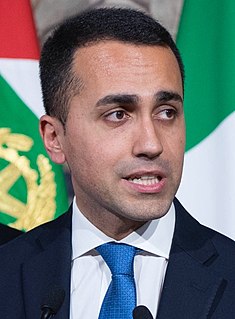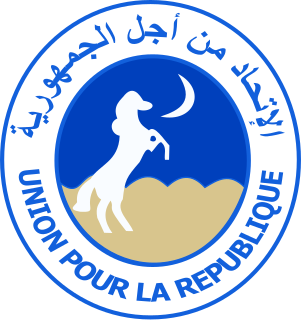Plurality voting is an electoral system in which each voter is allowed to vote for only one candidate, and the candidate who polls the most among their counterparts is elected. In a system based on single-member districts, it may be called first-past-the-post (FPTP), single-choice voting, simple plurality or relative/simple majority. In a system based on multi-member districts, it may be referred to as winner-takes-all or bloc voting. The system is often used to elect members of a legislative assembly or executive officers. It is the most common form of the system, and is used in most elections in the United States, the lower house in India, elections to the House of Commons and English local elections in the United Kingdom and Canada.

Party-list proportional representation systems are a family of voting systems emphasizing proportional representation (PR) in elections in which multiple candidates are elected through allocations to an electoral list. They can also be used as part of mixed additional member systems.
The additional member system (AMS), also known as mixed-member proportional representation (MMP) outside the United Kingdom, is a mixed electoral system with one tier of single-member district representatives, and another tier of ‘additional members’ elected to make the overall election results more proportional.
Mixed-member proportional (MMP) representation is a mixed electoral system in which voters get two votes: one to decide the representative for their single-seat constituency, and one for a political party. Seats in the legislature are filled firstly by the successful constituency candidates, and secondly, by party candidates based on the percentage of nationwide or region-wide votes that each party received. The constituency representatives are elected using first-past-the-post voting (FPTP) or another plurality/majoritarian system. The nationwide or region-wide party representatives are, in most jurisdictions, drawn from published party lists, similar to party-list proportional representation. To gain a nationwide representative, parties may be required to achieve a minimum number of constituency candidates, a minimum percentage of the nationwide party vote, or both.
Parallel voting describes a mixed electoral system where voters in effect participate in two separate elections for a single chamber using different systems, and where the results in one election have little or no impact on the results of the other.
The Japanese political process has three types of elections: general elections to the House of Representatives held every four years, elections to the House of Councillors held every three years to choose one-half of its members, and local elections held every four years for offices in prefectures, cities, and villages. Elections are supervised by election committees at each administrative level under the general direction of the Central Election Administration Committee, an attached organization to the Ministry of Internal Affairs and Communications (MIC). The minimum voting age in Japan's non-compulsory electoral system was reduced from twenty to eighteen years in June 2016. Voters must satisfy a three-month residency requirement before being allowed to cast a ballot.

There are two types of elections in Andorra: parliamentary elections and local elections. The 28 members of the General Council of the Valleys are elected in parliamentary elections for a maximum term of four years. In the local elections, the council members of the seven parishes of Andorra are elected for a four-year term.

The National Assembly is the lower house of the Parliament of South Africa, located in Cape Town, Western Cape Province. It consists of four hundred members who are elected every five years using a party-list proportional representation system where half of the members are elected proportionally from 9 provincial lists and the remaining half from national lists so as to restore proportionality.

General elections were held in Niger in 2004; the first round of the presidential elections was held on 16 November, with a run-off held alongside National Assembly elections on 4 December. The presidential elections were won by Mamadou Tandja of the National Movement for the Development of Society (MNSD). The MNSD also emerged as the largest party in the National Assembly, winning 47 of the 113 seats.

The Portuguese legislative election of 1995 took place on 1 October. The Socialist Party defeated the Social Democratic Party under the lead of António Guterres, elected three years before, but missed the absolute majority by 4 MPs.

The Portuguese legislative election of 1976 took place on 25 April, exactly one year after the previous election, and two years after the Carnation Revolution. With a new Constitution approved, the country's main aim was the economical recovery and the strengthen of the democratic conquests.

The Portuguese legislative election of 1985 took place on 6 October. In June of the same year, the former Prime-Minister, Mário Soares, had resigned from the job due to the lack of parliamentary support, the government was composed by a coalition of the two major parties, the center-right Social Democratic and the center-left Socialist, in what was called the Central Bloc, however this was an unstable balance of forces and several members of each party opposed such alliance.

Parliamentary elections were held in Hungary on 9 April 2006, with a second round of voting in 110 of the 176 single-member constituencies on 23 April. The Hungarian Socialist Party emerged as the largest party in the National Assembly with 186 of the 386 seats, and continued the coalition government with the Alliance of Free Democrats. It marked the first time a government had been re-elected since the end of Communist rule.
Plurality-at-large voting, also known as block vote or multiple non-transferable vote (MNTV), is a non-proportional voting system for electing several representatives from a single multimember electoral district using a series of check boxes and tallying votes similar to a plurality election. Multiple winners are elected simultaneously to serve the district. Block voting is not a system for obtaining proportional representation; instead the usual result is that where the candidates divide into definitive parties the most popular party in the district sees its full slate of candidates elected, resulting in a landslide.

An electoral system is a set of rules that determine how elections and referendums are conducted and how their results are determined. Political electoral systems are organized by governments, while non-political elections may take place in business, non-profit organisations and informal organisations.
Scorporo is a mixed-member electoral system whereby a portion of members are elected in single-member districts (SMDs) and a portion are elected from a list. It may be fully defined as a parallel voting system which excludes a portion of the SMD winners' votes in electing the proportional tier, to result in a more proportional outcome. The exclusion of a portion of the SMD winners' votes is what makes scorporo fundamentally different from parallel voting and somewhat closer to mixed member proportional representation, and thereby between the two in terms of proportionality. The system is only known to have been used in Italy and for a portion of the compensatory tier of the National Assembly of Hungary.

The next Italian general election is due to be held no later than 28 May 2023.

The Italian Electoral law of 2017, colloquially known by the nickname Rosatellum bis or simply Rosatellum, after Ettore Rosato, the Democratic leader in the Chamber of Deputies who first proposed the new law, is a parallel voting system, which act as a mixed system, with 37% of seats allocated using a first past the post electoral system and 61% using a proportional method, with one round of voting. The Senate and the Chamber of Deputies did not differ in the way they allocated the proportional seats, both using the largest remainder method of allocating seats.
Federal elections are scheduled to be held in Switzerland in 2019 to elect all members of both houses of the Federal Assembly. They will be followed by the 2019 election of the Swiss Federal Council, the federal executive, by the United Federal Assembly.















